Physical Address
304 North Cardinal St.
Dorchester Center, MA 02124
Physical Address
304 North Cardinal St.
Dorchester Center, MA 02124
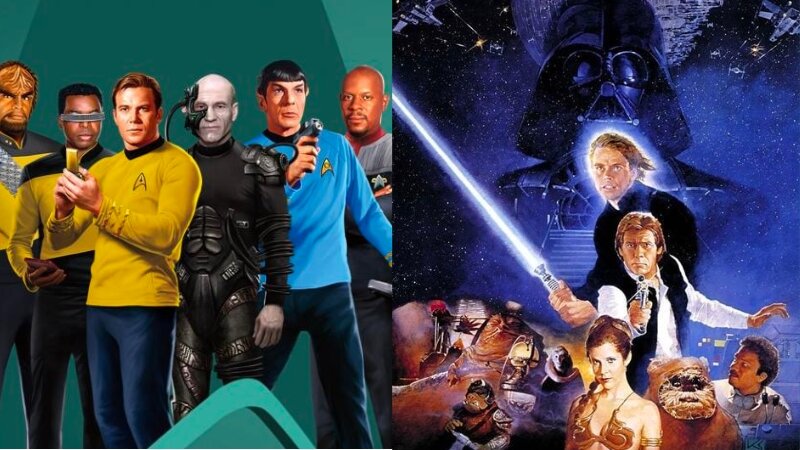
Few pop culture rivalries spark as much passion as the ongoing debate between Star Trek and Star Wars. Both franchises have left indelible marks on science fiction, cultivating massive fanbases and shaping generations of viewers. Whether it’s comparing their popularity, box office earnings, or the devotion of their respective fans, discussions never seem to fade. The rivalry extends into online communities like Reddit, fierce imaginary battles over which universe would win, and endless comparisons of iconic ships, episode counts, and even viral memes. As the debate continues, the Star Trek versus Star Wars saga remains a fascinating reflection of fandom and cultural impact.
Star Trek and Star Wars are two iconic sci-fi franchises that offer very different experiences, each beloved in its own way. Star Trek focuses on space exploration, scientific discovery, and moral questions, imagining a future where humanity seeks peace and understanding across the galaxy. It’s known for its thoughtful storytelling and optimistic view of technology and human progress. In contrast, Star Wars is more of a space fantasy, centered on epic battles between good and evil, with mystical elements like the Force adding a magical dimension. Its stories are action-packed adventures filled with memorable characters and dramatic conflicts.
Fans often debate which is better, but it really depends on what you enjoy. Star Trek appeals to those who love intellectual depth and ethical dilemmas, while Star Wars captivates with its thrilling battles and mythic storytelling. Both have left huge marks on pop culture, inspiring generations in unique ways. Whether you prefer the hopeful exploration of Star Trek or the heroic saga of Star Wars, both franchises offer rich, immersive worlds worth exploring.
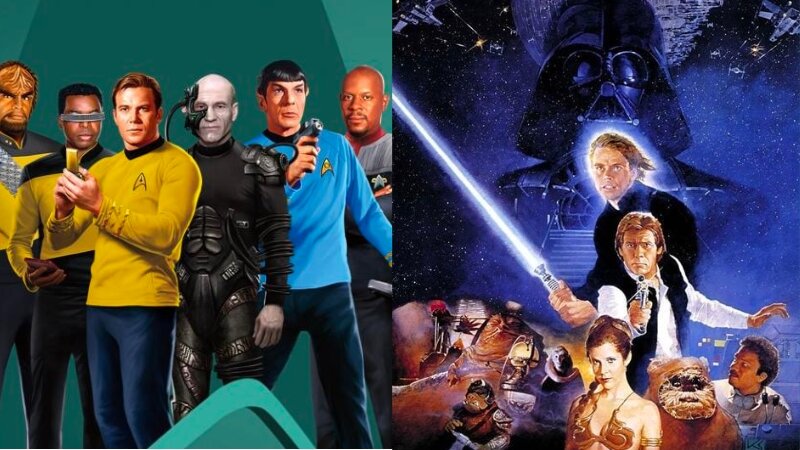
Star Trek and Star Wars have both captivated fans for decades, but their popularity has seen some interesting shifts recently. Star Wars burst onto the scene in 1977 with its epic battles between good and evil, mystical elements like the Force, and iconic characters such as Darth Vader and Luke Skywalker. Its grand space opera style has made it a cultural phenomenon loved for thrilling adventures and mythic storytelling.
Star Trek, on the other hand, offers a more optimistic and cerebral take on science fiction. It focuses on exploring space, scientific discovery, and moral dilemmas through relatable, “real” characters who have careers, flaws, and dreams rather than mystical destinies. This approach has earned it a devoted following that appreciates its thoughtful storytelling and willingness to experiment with different genres.
Interestingly, recent fan polls suggest Star Trek’s popularity is rising and may soon rival or even surpass Star Wars, partly due to new successful series like Picard Season 3 and the mixed reception of Star Wars’ latest films. While Star Wars remains a beloved classic, Star Trek’s evolving universe and diverse storytelling continue to attract growing enthusiasm.
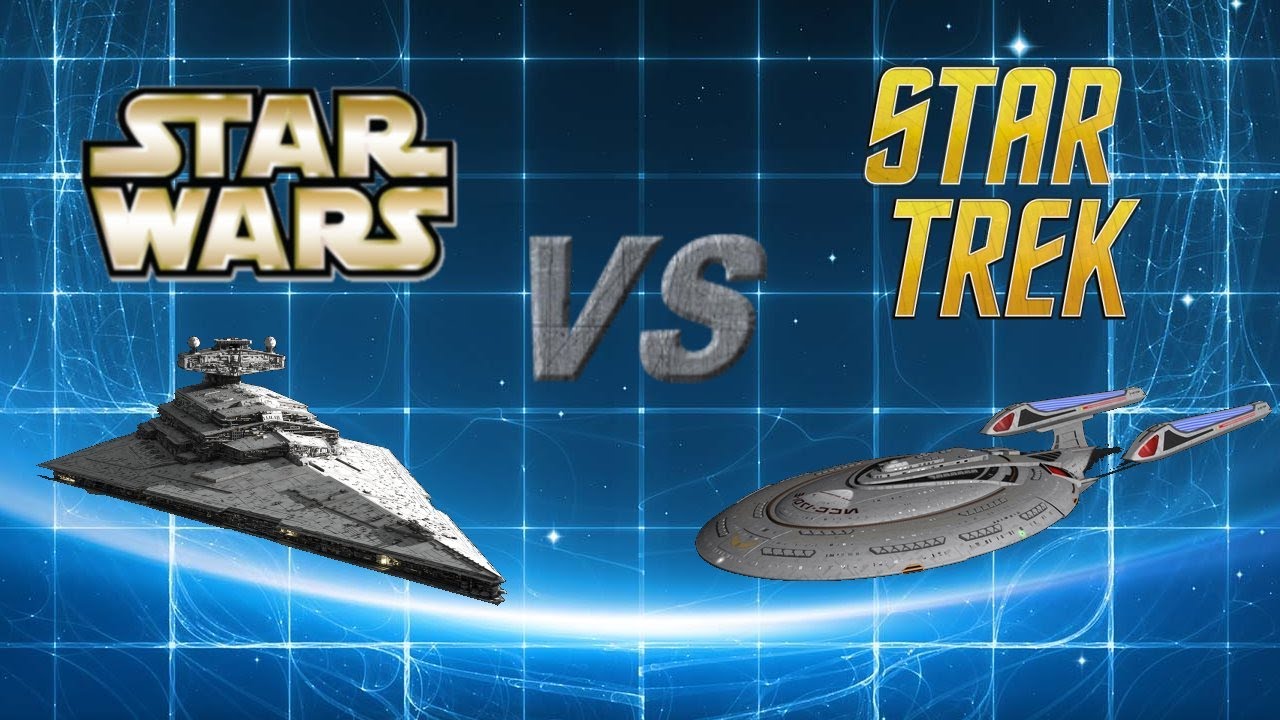
When it comes to gross earnings, Star Wars significantly outshines Star Trek. The Star Trek film series, spanning 13 movies, has grossed about $2.27 billion in total box office revenue. In contrast, Star Wars, with fewer films, has earned roughly six times more from its movies alone, totaling around $13.8 billion or more, depending on the count of animated and spin-off films included. This huge difference highlights Star Wars’ broader appeal and commercial success.
Star Trek’s highest-grossing film, the 2009 reboot, made about $386 million, which is impressive but still modest compared to Star Wars blockbusters like The Force Awakens, which grossed over $2 billion worldwide. The Star Wars franchise also benefits from extensive merchandise, TV shows, and expanded universe content, which multiply its overall earnings far beyond just box office numbers.
In summary, while both franchises have passionate fanbases and cultural impact, Star Wars dominates in gross earnings by a wide margin, making it one of the most financially successful entertainment franchises ever.
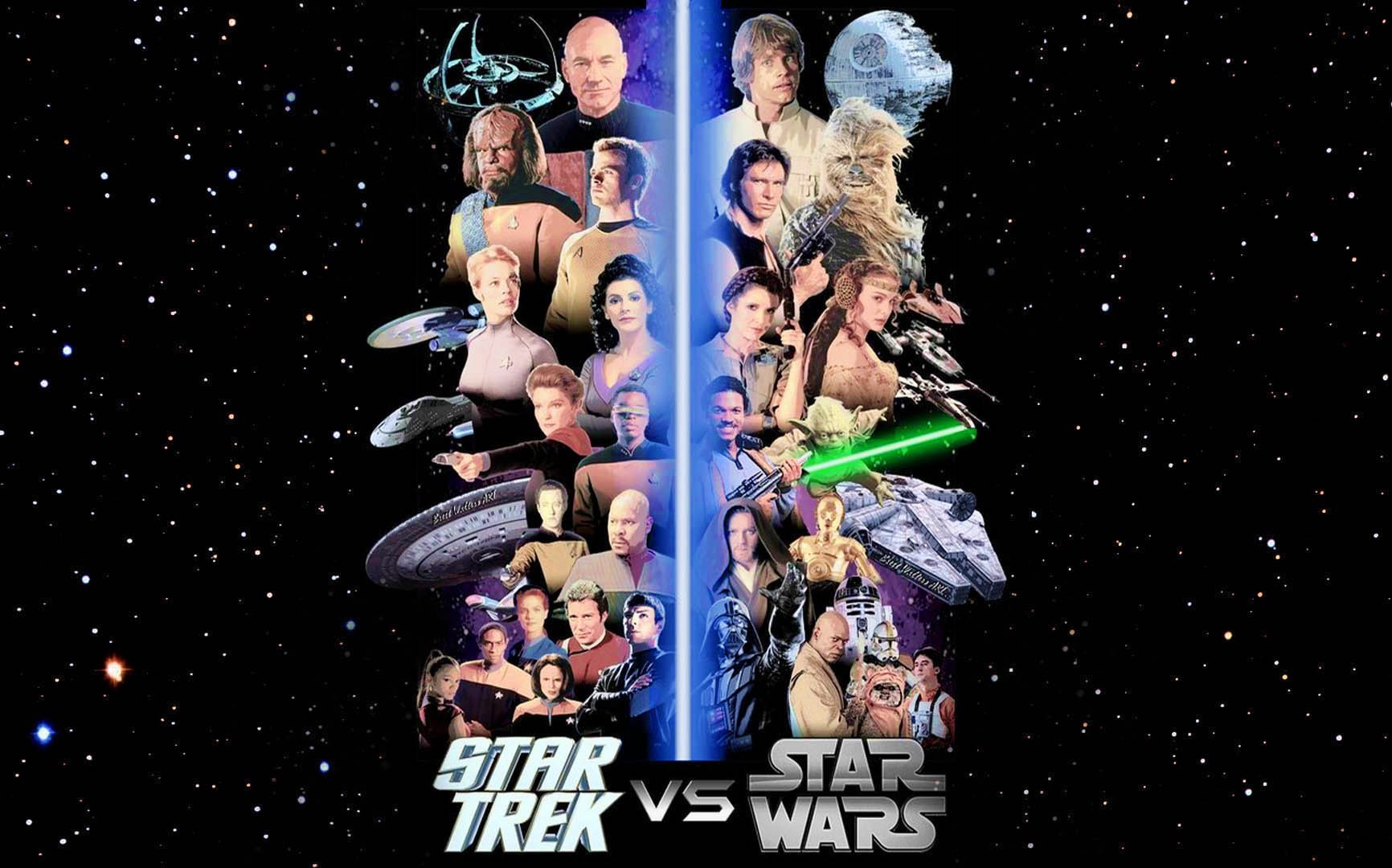
Fans of Star Trek and Star Wars often find themselves in playful rivalry, but their passions come from very different places. Star Trek fans tend to appreciate the franchise’s focus on technology, exploration, and philosophical themes like justice and identity. The series imagines a hopeful future where science and reason guide humanity, appealing to those who enjoy thoughtful, science-based storytelling. On the other hand, Star Wars fans are drawn to its epic drama, moral dilemmas, and mythic storytelling rooted in fantasy and adventure. The Force, lightsabers, and space battles create a swashbuckling, emotional experience that emphasizes character and heroism over scientific accuracy.
This difference in tone often shapes the fan communities: Star Trek fans might dive deep into the science and ethics of the universe, while Star Wars fans focus on the characters’ journeys and the grand battle between good and evil. Despite the rivalry, many fans enjoy both, recognizing that the two franchises offer unique experiences rather than competing directly. After all, the only real common ground is that both take place in space, but they each invite us to explore very different kinds of stories and worlds.

The Star Trek vs. Star Wars debate on Reddit is a lively and ongoing conversation where fans passionately discuss the strengths and differences of these iconic franchises. Many Redditors appreciate Star Trek for its character-driven stories and its focus on science fiction grounded in plausible science, making its characters more relatable and its universe more detailed. For example, users highlight how Star Trek explores complex social and ethical issues through its diverse crew, which resonates on a personal level. On the other hand, Star Wars fans often emphasize the epic, fantasy-like adventure with memorable heroes, dramatic family conflicts, and spectacular special effects that create a timeless space opera feel. Some Reddit discussions point out that comparing the two is like comparing different genres—Star Trek is more about thoughtful exploration and optimism about the future, while Star Wars is about mythic storytelling and heroic quests. Overall, the Reddit community enjoys debating these differences with respect, recognizing that both franchises offer unique experiences that appeal to different tastes in sci-fi and fantasy. Whether you prefer the hopeful, science-based vision of Star Trek or the grand, adventurous saga of Star Wars, Reddit provides a great space for fans to share their love and insights.
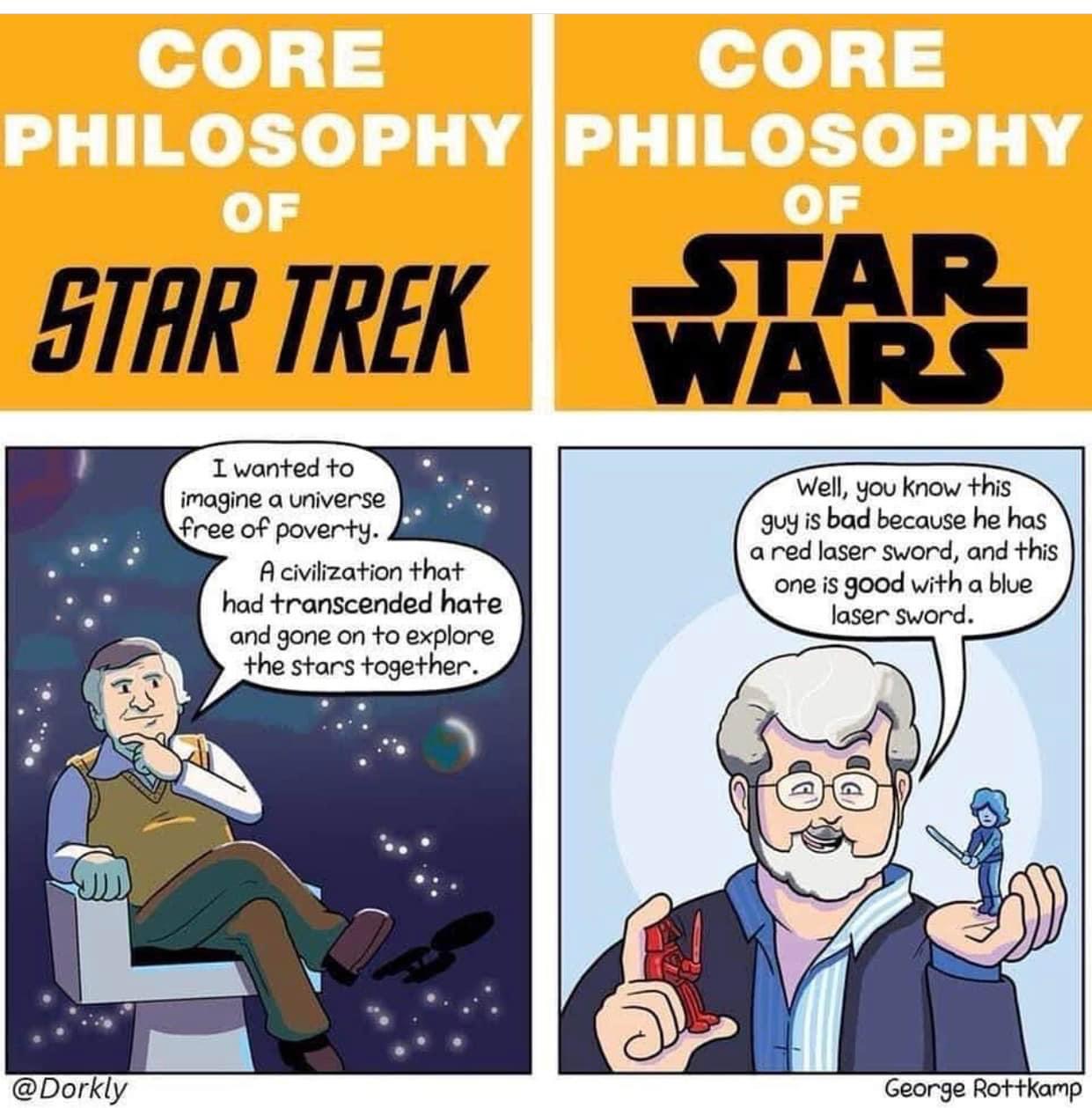
When it comes to Star Trek vs. Star Wars and who would win, the debate is as much about style and philosophy as about power. Star Trek focuses on exploration, technology, and moral questions, with a universe that feels politically complex and grounded in science. Its characters rely on ingenuity, advanced tech like transporters, and a structured chain of command to solve problems. On the other hand, Star Wars thrives on epic battles, the mystical Force, and the classic good vs. evil struggle. It’s more about raw power, legendary heroes, and dramatic space warfare, with flashy starships and supernatural abilities shaping the conflict.
If we imagine a direct clash, Star Wars might have the edge in sheer combat power thanks to the Force and large-scale battles, while Star Trek’s strength lies in strategy, technology, and diplomacy. Fans often say Star Trek’s universe feels more “realistic,” while Star Wars delivers thrilling, mythic storytelling. So, who would win? It depends on the rules of the fight—brains and tech versus raw power and mysticism. Both have their unique strengths, making this matchup a fun, endless conversation rather than a clear-cut victory.
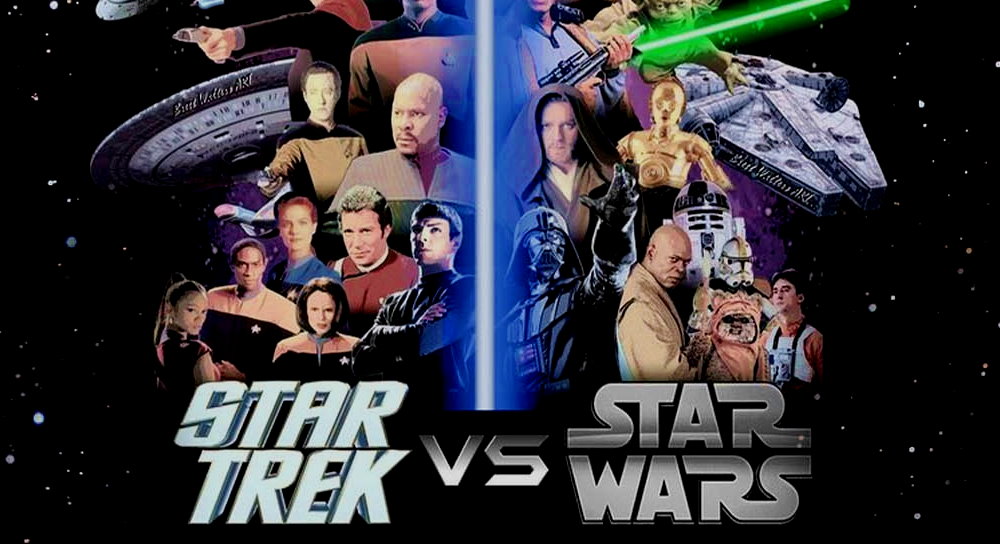
When comparing ships from Star Trek and Star Wars, the differences reflect the unique storytelling styles of each universe. Star Wars ships, like the iconic Millennium Falcon and Imperial Star Destroyers, are designed for dramatic battles and often get blown up in spectacular fashion. Their hyperdrive allows fast travel across the galaxy in days, making space feel vast but accessible. The Star Destroyer, for example, carries many starfighters and heavy turbolasers, emphasizing firepower and fleet combat.
In contrast, Star Trek ships, such as the USS Enterprise, are almost characters themselves, with detailed histories and personalities. Their warp drive is more scientifically framed, with speeds measured in warp factors, and they focus on exploration and diplomacy alongside combat. Star Trek shields use gravitons to protect the ship, and their photon torpedoes can be fired at warp speed, giving them a strategic edge in long-range engagements. While Star Wars excels in epic space battles, Star Trek offers a more nuanced approach to ship design, emphasizing versatility and story depth. Both universes have crafted ships that perfectly fit their narrative worlds, making the comparison a fun way to appreciate different sci-fi traditions.
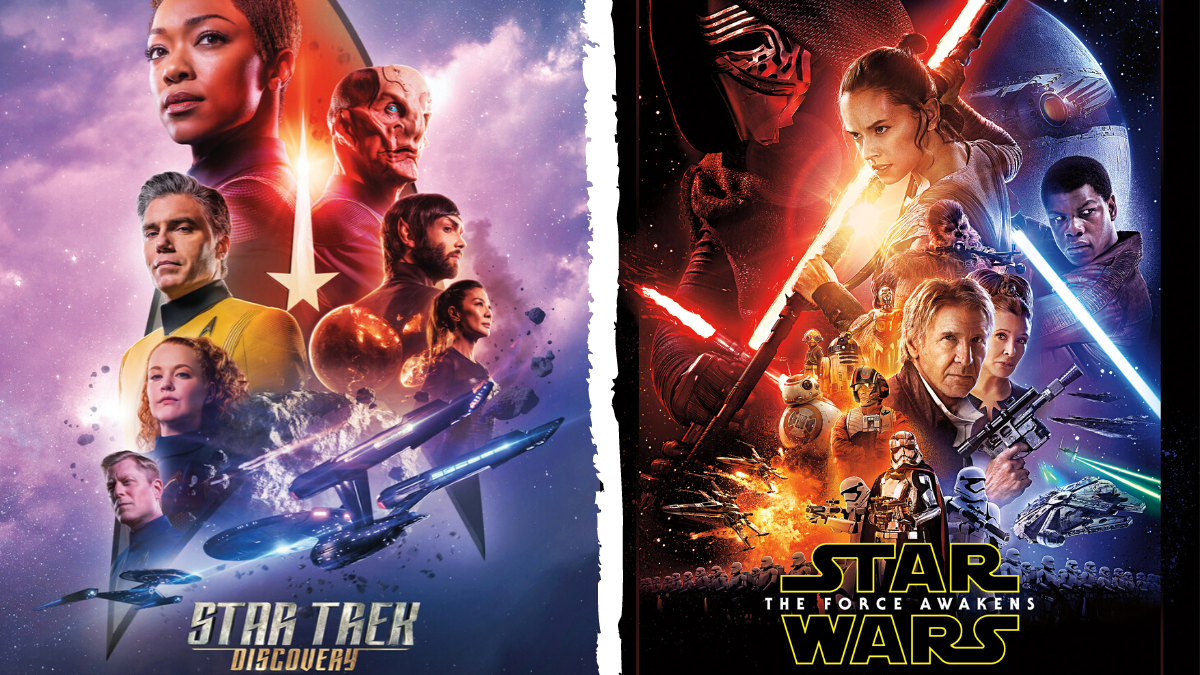
When comparing Star Trek and Star Wars episodes, the two franchises offer very different experiences that appeal to distinct tastes. Star Trek episodes, especially from the original series, tend to focus on thoughtful, often philosophical storytelling. They explore complex themes like war, morality, and cultural clashes, making the stories more nuanced and reflective of real-world issues. The episodic nature allows for a wide variety of adventures, from encounters with alien species to ethical dilemmas, often emphasizing character development and intellectual exploration.
In contrast, Star Wars episodes are more about epic space opera with grand battles and a clear good-versus-evil narrative. The saga features iconic characters like Darth Vader and memorable moments that feel larger than life. The storylines are generally more straightforward, focusing on adventure, heroism, and the struggle between the Jedi and Sith. Star Wars excels in delivering thrilling, cinematic battles and emotionally charged character arcs, which have made it a pop culture phenomenon.
Ultimately, Star Trek offers a more cerebral and varied episodic experience, while Star Wars provides sweeping, epic storytelling with unforgettable characters and action. Both have their unique strengths, making them beloved in different ways by fans worldwide.

The Star Trek vs. Star Wars meme battle is a hilarious reflection of one of the most famous rivalries in pop culture. These memes capture the playful yet passionate debates between fans of the two iconic sci-fi universes, often poking fun at their differences. Star Wars is known for its epic space battles and mystical Force powers, while Star Trek emphasizes technology, exploration, and moral dilemmas. Memes highlight these contrasts with witty comparisons—like lightsabers versus phasers or the Millennium Falcon versus the Enterprise—making the rivalry both entertaining and relatable.
What makes these memes especially fun is how they unite fans through humor rather than division. Despite the fierce loyalty on both sides, many memes suggest that Star Wars and Star Trek fans could be allies rather than enemies, given their shared love of science fiction and imagination. The internet has amplified this playful competition, turning it into a treasure trove of jokes that only true fans fully appreciate. Whether you lean toward the Jedi or the Federation, these memes celebrate the joy of fandom and the endless creativity it inspires.
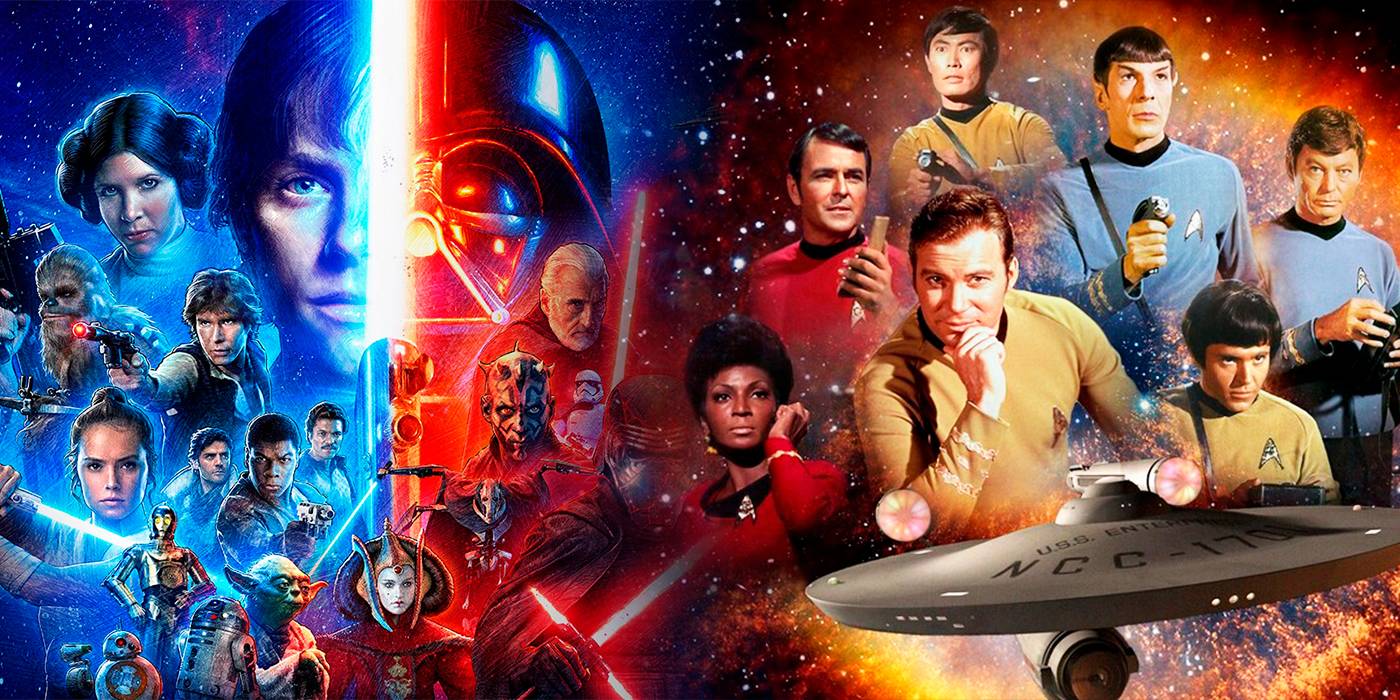
In conclusion, the debate between Star Trek and Star Wars transcends mere fandom, embodying deeper philosophical and cultural themes. Star Trek, with its focus on exploration, diplomacy, and the potential for unity among diverse species, inspires hope for a future where humanity overcomes its flaws. Conversely, Star Wars captivates audiences with its epic struggle between good and evil, highlighting the power of choice and the hero’s journey. Ultimately, both franchises offer unique perspectives that resonate with their audiences, and whether one prefers the utopian voyages of the USS Enterprise or the thrilling battles of a galaxy far, far away, each saga enriches the landscape of science fiction and popular culture.